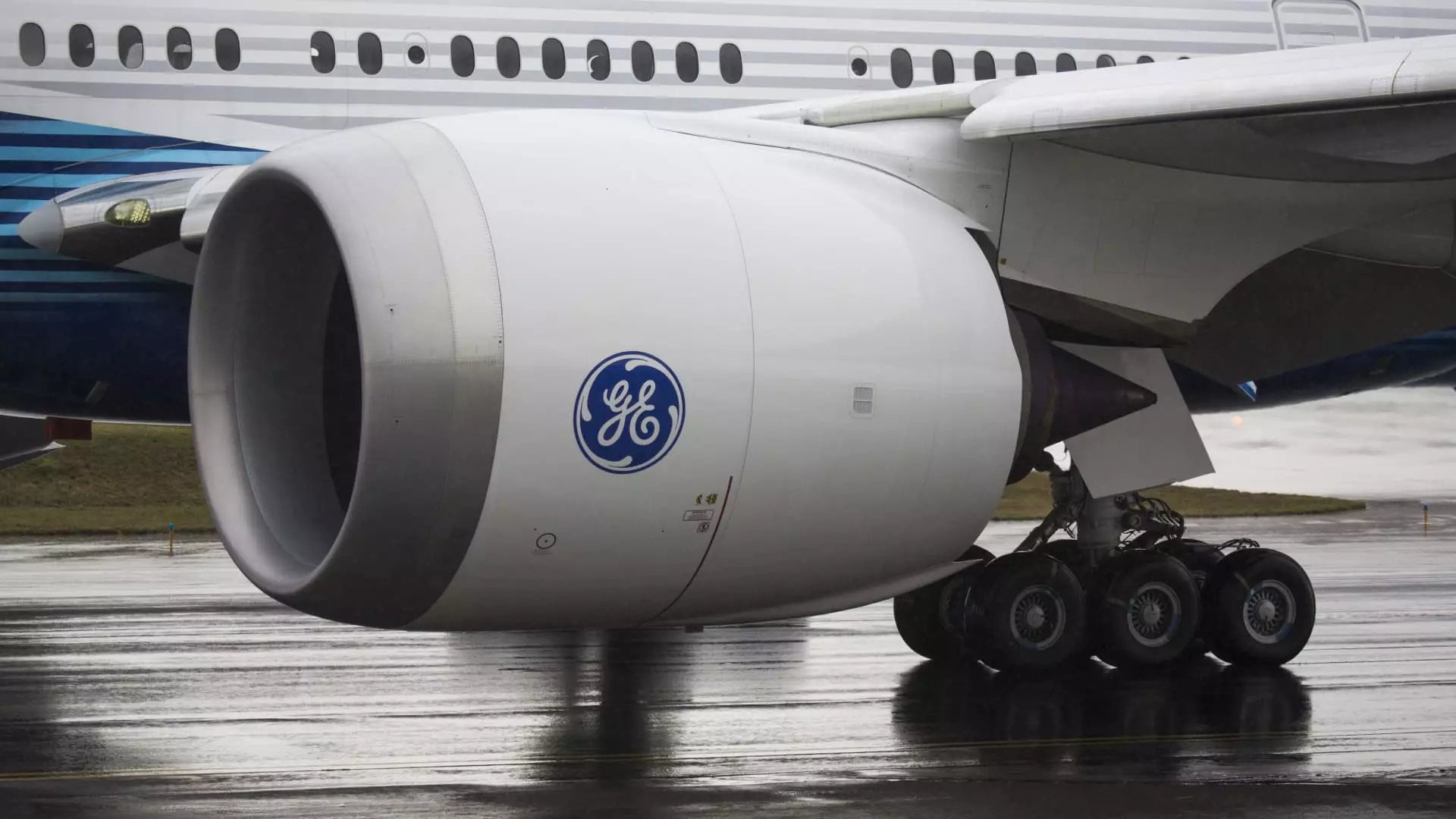In the ever-volatile landscape of global trade, few corporations are as adept at navigating challenges as GE Aerospace. According to Bank of America analyst Ronald Epstein, the company has carved out a unique position through its proactive tariff mitigation strategies. Unlike many of its competitors, which appear to be adrift in a “tariff tidal wave,” GE Aerospace has managed to insulate itself. While other firms flounder under the weight of trade duties, GE exhibits a remarkable capacity not only to weather the storm but to thrive within it.
Epstein’s observations about GE’s operational strength and market positioning reinforce the notion that this is a company that has not only survived but has planted its flag firmly in the ground, even amidst uncertainty. This insight reveals a significant truth: proactive strategies often yield dividends that transcend mere financial metrics.
Impressive Financial Outlook Despite Headwinds
Bank of America stands firm in its endorsement of GE Aerospace, maintaining a “buy” rating while projecting a price target of $230 per share. This optimistic forecast translates to an approximate 17% upside from its recent valuation of $197.41. The implications are profound, particularly given the broader economic context, where tariffs have induced volatility and uncertainty across Wall Street.
What sets GE Aerospace apart—and what should trigger investor interest—is its foresight in handling a projected $500 million cost headwind attributable to tariffs. Here lies the essence of GE’s distinctive market position: an openness to acknowledge adversity while simultaneously establishing clear mechanisms to mitigate its impact. This dual approach not only demonstrates transparency but also highlights the firm’s robust management strategies.
The Art of Absorption and Adaptation
Analysts like Epstein make a compelling case that GE’s ability to absorb costs without compromising its overall outlook is what truly differentiates it from its peers. The underlying dynamics of their fiscal prudence reveal a sophisticated understanding of the market’s volatility. GE’s initial outlook reflects a blend of conservatism and strategic foresight; they are not merely reacting to external pressures but proactively controlling their destiny through well-established levers.
This system of levers includes innovative use of free-trade zones and operational enhancements, which are critical for a company deeply embedded in the complex web of the global supply chain. By exercising these strategies, GE not only addresses immediate tariff concerns but positions itself advantageously for future opportunities.
Political Engagement and Market Influence
Interestingly, GE Aerospace’s CEO Larry Culp has also taken the step of engaging directly with political figures, including recent discussions with former President Trump regarding the U.S. aerospace trade surplus. This type of political engagement underscores the connection between corporate strategies and the larger political economy. It is a double-edged sword, where the benefits of relationships can be reaped but must be carefully balanced with the realities of fluctuating political sentiments.
For investors, this engagement signals more than just a relationship with political power; it presents a broader strategy to influence trade policies that affect not only GE Aerospace but the entire industry. Initiatives that foster a favorable business environment can lead to a more stable investment climate, which could coax hesitant investors back to the market.
A Future Rooted in Confidence
The confidence that GE Aerospace has placed in its ability to outmaneuver tariff-related challenges is both refreshing and indicative of savvy leadership. With shares rebounding nearly 20% this year, contrasting sharply with the S&P 500’s 7% decline, GE represents a bastion of stability within an otherwise tumultuous marketplace. For stakeholders willing to seize opportunity amid uncertainty, GE Aerospace provides not only a resilience story but also a blueprint for success.
The overarching narrative of GE Aerospace’s journey through tariff turmoil serves as a powerful reminder that it is the companies that dare to forge a path of strategic foresight and adaptability that will ultimately thrive. Amidst the chaos of current market conditions, GE’s narrative is compelling and critical for investors who appreciate the complexity of both global trade and corporate integrity.

